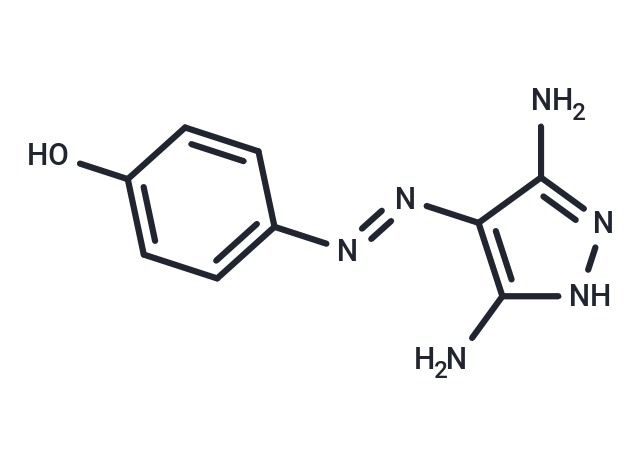Shopping Cart
- Remove All
 Your shopping cart is currently empty
Your shopping cart is currently empty

CAN508 is a potent ATP-competitive CDK9/cyclin T1 inhibitor with an IC50 of 0.35 μM. It also competitively inhibits Cdk2-cyclin E with respect to ATP, with Ki and IC50 values of 13.3 μM and 20 μM, respectively. CAN508 exhibits a 38-fold selectivity for CDK9/cyclin T over other CDK/cyclin complexes. [Antitumor activity.]

| Pack Size | Price | Availability | Quantity |
|---|---|---|---|
| 5 mg | $41 | In Stock | |
| 10 mg | $59 | In Stock | |
| 25 mg | $125 | In Stock | |
| 50 mg | $191 | In Stock | |
| 100 mg | $283 | In Stock | |
| 200 mg | $416 | In Stock | |
| 1 mL x 10 mM (in DMSO) | $48 | In Stock |
| Description | CAN508 is a potent ATP-competitive CDK9/cyclin T1 inhibitor with an IC50 of 0.35 μM. It also competitively inhibits Cdk2-cyclin E with respect to ATP, with Ki and IC50 values of 13.3 μM and 20 μM, respectively. CAN508 exhibits a 38-fold selectivity for CDK9/cyclin T over other CDK/cyclin complexes. [Antitumor activity.] |
| Targets&IC50 | CDK9-CyclinT1:0.35 μM |
| In vitro | The most potent inhibitor,CAN508, reduced the frequency of S-phase cells of the cancer cell line HT-29 in antiproliferation assays.?Further observed cellular effects included decreased phosphorylation of the retinoblastoma protein and the C-terminal domain of RNA polymerase II, inhibition of mRNA synthesis, and induction of the tumor suppressor protein p53, all of which are consistent with inhibition of CDK9. |
| Molecular Weight | 218.22 |
| Formula | C9H10N6O |
| Cas No. | 140651-18-9 |
| Smiles | Nc1n[nH]c(N)c1\N=N\c1ccc(O)cc1 |
| Relative Density. | 1.67 g/cm3 (Predicted) |
| Storage | Powder: -20°C for 3 years | In solvent: -80°C for 1 year | Shipping with blue ice. | |||||||||||||||||||||||||||||||||||
| Solubility Information | DMSO: 250 mg/mL (1145.63 mM), Sonication is recommended. | |||||||||||||||||||||||||||||||||||
Solution Preparation Table | ||||||||||||||||||||||||||||||||||||
DMSO
| ||||||||||||||||||||||||||||||||||||

Copyright © 2015-2025 TargetMol Chemicals Inc. All Rights Reserved.